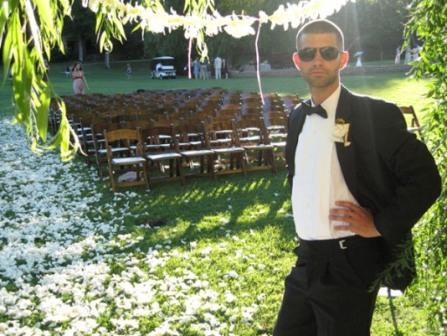Post Urbanism
Mike Davis, a prominent US urban studies scholar best know for his book City of Quartz about Los Angeles, published a racy and thought-provoking piece about Dubai last fall in the New Left Review.
Titled "Fear and Money in Dubai", Davis' article is impressive in its anecdotes about the city and hip pop cultural references. Yet unlike his books, especially Ecology of Fear, Davis appears like a fish out of water when discussing Dubai and leaves readers pondering if the fear he defines as an underpinning to Dubai's financial success is in fact, his own grappling with a fear of how a post-urban, Middle Eastern city like Dubai could actually succeed.
Ironically, most of the slights Davis applies to Dubai originate from his own backyard, in Los Angeles, California. While seemingly shocked at the excesses of the "petrodollar" in Dubai, he fails to really explore the reality that he and his LA neighbors subsidize this with their own vehicular excesses. Davis' writing conveys an uneasiness around Dubai projects like Dubailand and gated residential communities, even though again, these models are derived from his own backyard in Southern California. And while he rightly sympathizes with the plight of unskilled, South Asian laborers in Dubai, he fails to acknowledge that all cities are built and sustained by imported labor of some kind; one would be hard-pressed to imagine LA functioning without the presence of cheap Mexican labor.
Ultimately, Davis' perspective resides in a larger critique of post-urbanism, understood as cities that "create appetities rather than solve problems." Yet a deeper analysis of Dubai, below the surface mirage that blinded Davis, reveals that Dubai does both, creating appetites for tourists who wouldn't have otherwise considered visiting the Middle East and solving problems for skilled and unskilled workers who due to political strife or a general lack of economic opportunity in their home countries, come to Dubai for a better life. Had Davis dug deeper beyond the predominantly Western media sources he references and the glitzy image which distorts anyone's vision of Dubai, he would perhaps find more comfort from his own fear of money in Dubai.
Titled "Fear and Money in Dubai", Davis' article is impressive in its anecdotes about the city and hip pop cultural references. Yet unlike his books, especially Ecology of Fear, Davis appears like a fish out of water when discussing Dubai and leaves readers pondering if the fear he defines as an underpinning to Dubai's financial success is in fact, his own grappling with a fear of how a post-urban, Middle Eastern city like Dubai could actually succeed.
Ironically, most of the slights Davis applies to Dubai originate from his own backyard, in Los Angeles, California. While seemingly shocked at the excesses of the "petrodollar" in Dubai, he fails to really explore the reality that he and his LA neighbors subsidize this with their own vehicular excesses. Davis' writing conveys an uneasiness around Dubai projects like Dubailand and gated residential communities, even though again, these models are derived from his own backyard in Southern California. And while he rightly sympathizes with the plight of unskilled, South Asian laborers in Dubai, he fails to acknowledge that all cities are built and sustained by imported labor of some kind; one would be hard-pressed to imagine LA functioning without the presence of cheap Mexican labor.
Ultimately, Davis' perspective resides in a larger critique of post-urbanism, understood as cities that "create appetities rather than solve problems." Yet a deeper analysis of Dubai, below the surface mirage that blinded Davis, reveals that Dubai does both, creating appetites for tourists who wouldn't have otherwise considered visiting the Middle East and solving problems for skilled and unskilled workers who due to political strife or a general lack of economic opportunity in their home countries, come to Dubai for a better life. Had Davis dug deeper beyond the predominantly Western media sources he references and the glitzy image which distorts anyone's vision of Dubai, he would perhaps find more comfort from his own fear of money in Dubai.


1 Comments:
Nice. I like this a lot - nothing like exposing people's problems with the other... I haven't been able to find that guy you mentioned at Harvard - maybe spelling the problem? All the very best, Alexander
Post a Comment
<< Home